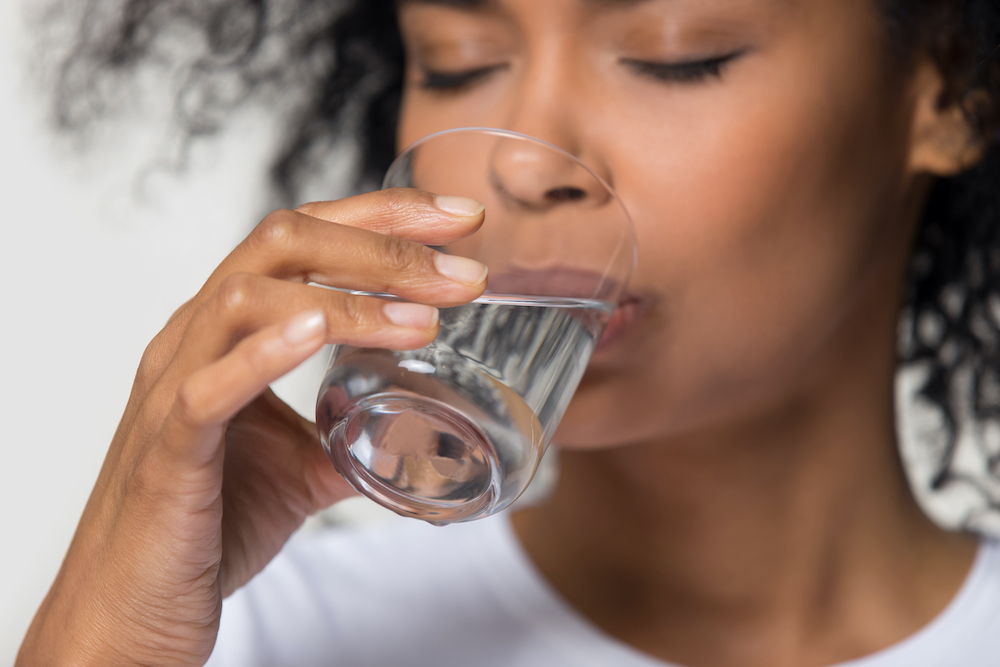Dry or Dehydrated Skin: How to Tell the Difference

We often use the terms dry skin and dehydrated skin interchangeably. This is understandable since they share many of the same symptoms. Plus, they both can be underlying conditions that cause a common skin culprit – acne. Knowing how to tell which of these conditions is impacting your skin can even help you treat pimple-prone skin. A win-win!
In this post, we will discover how dry skin differs from dehydrated skin, and what you can do about both conditions to reveal your healthiest skin this season.
What is dry skin?
Dry skin is a skin type that can be caused by genetics, hormonal imbalances and even thyroid issues. It is typically not a temporary condition; rather, it is something that will likely need constant attention throughout your life. Dry skin is due to a lack of sebum, or oil. With less oil, your skin has fewer lipids to help retain moisture and protect against external factors that can contribute to dry skin conditions. Dry skin can appear anywhere on the body, but it is most commonly found near the nose, mouth and eyebrows on the face and the neck, thighs and underarms on the body.
Signs of Dry Skin
If you are suffering from dry skin, you may notice some of the following signs in your skin:
- Lackluster appearance
- Flakiness
- Rough appearance
- Cracks
- Leathery appearance
- Itchiness
- More visible wrinkles and fine lines
How to Treat Dry Skin
Dry skin is considered a skin type which makes it a more permanent condition. However, there are a number of ways you can treat and relieve the symptoms of dry skin.
- Use oil-based cleansers that will contribute moisture and won’t strip your skin of its natural oils
- Try an omega-3 supplement
- Add a rich and nourishing oil to your skincare regimen
- Increase your antioxidant intake
- Follow the treatment suggestions for dehydrated skin below
What is dehydrated skin?
Rather than a skin type, dehydrated skin is a temporary skin condition that is due to a lack of water. Water levels can be stripped from your skin through a number of factors. External factors such as weather, diet, alcohol or caffeine, air conditioned or heated air can reduce the water content of your skin. Dehydrated skin can occur in people of any skin type, not just with a dry skin type. That is why it is so important to pay attention to how you nourish your body from the inside out.
Signs of Dehydrated Skin
If you are suffering from dehydrated skin, you may notice some of the following signs in your skin:
- Flat appearance
- Tight feeling
- Fine lines and wrinkles
- Itchiness
- Reduced reaction to light pressure
- Dark circles under the eyes
- Redness
- Congestion and inflammation
How to Treat Dehydrated Skin
Luckily, dehydrated skin can be treated rather easily by adopting healthier habits, avoiding harmful external factors and applying the right skincare products. To properly treat dehydrated skin:
- Up your water intake
- Decrease your caffeine and alcohol intake
- Exfoliate several times per week
- Include a serum that contains hyaluronic acid
- Apply a rich moisturizer before bed
- Take short showers or baths, avoiding very hot water
- Get a humidifier for your bedroom, home office or anywhere you spend a lot of time
- Apply a moisturizing mask weekly
Maintain Your Dry or Dehydrated Skin
If you have dry or dehydrated skin, you have to be consistent with your skincare routines and lifestyle choices. After trying the suggested at-home remedies for dry or dehydrated skin without results, consider scheduling an appointment with your dermatologist. Your doctor may be able to identify other underlying factors that could be contributing to your skin problems and get you on a path to the skin you want.
If you live in the Atlanta area, contact Buckhead Dermatology in Atlanta and College Park to schedule an appointment with our board-certified dermatologist. Dr. Straughn has helped countless Atlanta residents to gain a better understanding of their skin and achieve the results they want. As a black skin specialist, Dr. Straughn treats a variety of skin conditions including ashy skin, dermatosis papulosa nigra, ingrown hairs, keloids, acne keloidalis, vitiligo, melasma and eczema.
Contact our office today at 404-816-4000 to set up your next appointment.
